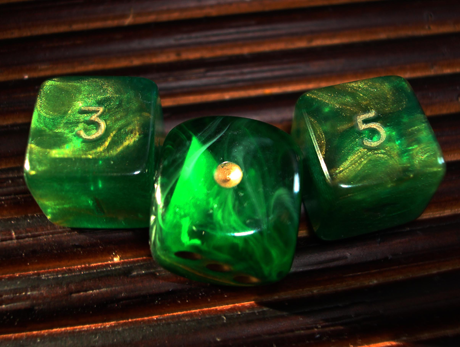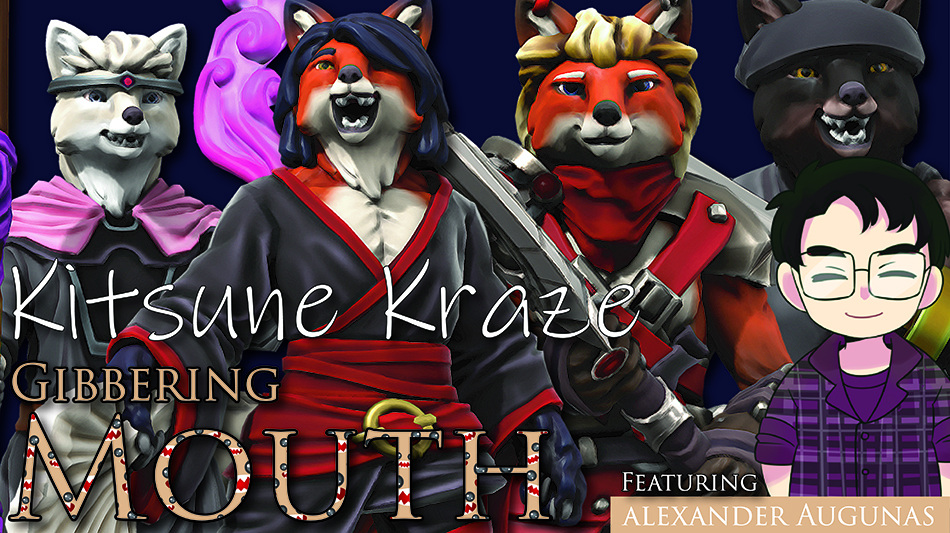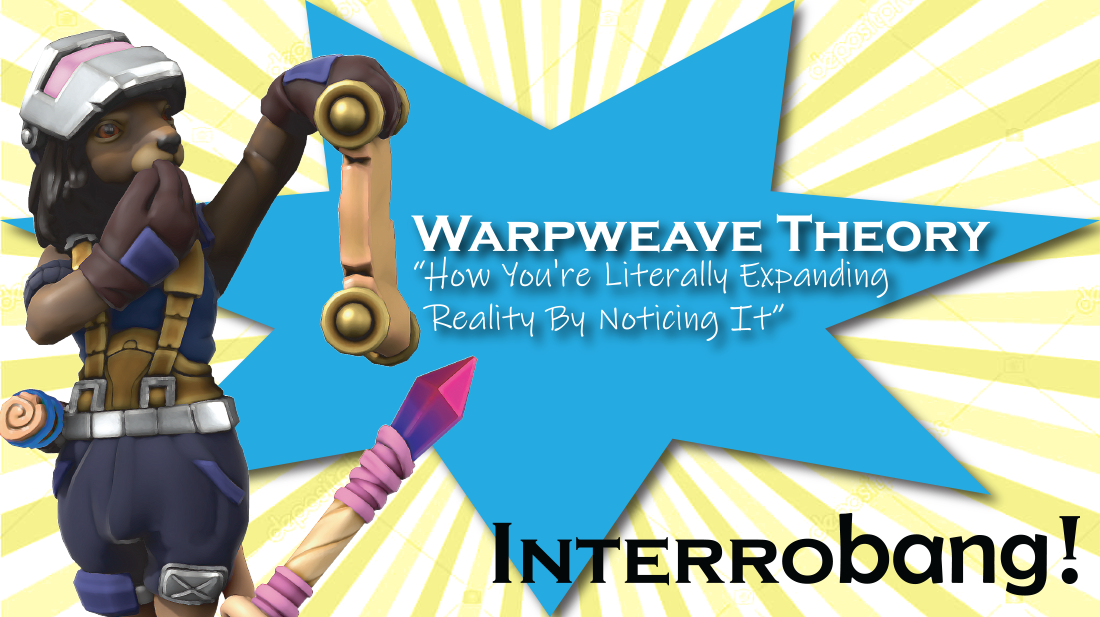Welcome to Guidance, Private Sanctuary’s source for tips and techniques for the Pathfinder Roleplaying Game, written by Everyman Gamer Alexander Augunas. Today, we’re going to be talking about the perception between roleplaying and “rollplaying.”
Oh man, nothing burns me up more than this topic: that’s why it’s a rave post. Today we’re going to be talking about the community divide surrounding the “opposing” gamestyles of ‘roleplaying’ and ‘rollplaying’?
What is Roleplaying?
You’ve read the Core Rulebook’s full title, right? You’re playing the Pathfinder ROLEPLAYING Game, after all! In a nutshell, roleplaying is any activity in which players create or are given fictional characters to portray. Roleplaying games usually incorporate game rules so the roleplaying doesn’t devolve into people shouting about what their characters can do and why they can never fail at it.
Roleplaying comes in a wide variety with an equally large number of reasons for its existence. Sometimes roleplaying is used for therapeutic reasons (such as marriage counseling or emotional support) but more often then not, roleplaying is a recreational activity (as you are all likely aware). Roleplaying in the Pathfinder sense is any activity in which you portraying your Player Character.
What is Rollplaying?
Don’t bother searching a dictionary website for this term; you’re not likely to find it, as the term “rollplaying” tends to be an insult directed at players who optimize their Player Characters. Rollplaying is a slanderous homonym of roleplaying that combines the words “roll” and playing” together that means “playing the game to roll dice.” Rollplayers are typically portrayed as Player Characters who have little to no interest in the game’s story and are more interested in playing a tactical miniature game then divulge themselves in Pathfinder’s story.
The Argument
As I mentioned, there is a strong difference in connotation between these two words. Roleplaying tends to be a neutral word while ‘rollplaying’ refers to a behavior rather than an activity. Players and GMs who consider themselves story-focused players typically use the Rollplayer label as a scarlet letter, branding their fellow’s actions as something undesirable because of a stereotype that players who optimize their characters for success in combat do not care about the game’s roleplaying aspects.
The Myth
There are actually two myths in the above argument: 1) that roleplaying and “rollplaying exist on some kind of axis so that the more into combat you are the less into you are and vice versa and 2) that players who enjoy rolling dice do not enjoy roleplaying. Let’s take a look at each myth separately.
The Roleplay/Rollplay Axis
Maybe it’s because of our tendency as Pathfinder gamers to look at good and evil, law and chaos, right and wrong on an axis that many of us try to apply the axis logic to personal preference for combat or roleplaying. People in general are very binary in their tastes and tend to see anything that they personally agree with or enjoy as being ‘wrong.’ As mentioned before, the term ‘rollplayer’ is one that is typically plastered onto players who have a preference for combat over roleplaying and I don’t mean to make these so-called rollplayers look victimized; they often do their fair share of judging towards dedicated roleplayers but they simply don’t have a buzzword to describe the people whose interests they don’t share like the roleplayers do.
So why is this “axis” a myth? Using an “axis” for your argument denotes a state of either/or: either you’re a rollplayer or you’re a roleplayer. This type of logic is, however, a gross oversimplification of gamers in generation. In effect, the roleplay/rollplay axis creates a massive self-imposed stereotype for not only Pathfinder players, but players of roleplaying games in general. And just so we’re clear here, this is the definition of stereotype: a widely held but fixed and oversimplified image or idea of a particular type of person or thing. Pretty much hits the nail on the head for this one. This definition is also the perfect transition into our analysis on the second part of the “rollplaying” myth.
Oversimplification of Gamers
As mentioned, the Roleplaying/Rollplaying axis is a gross oversimplification of the people who play roleplaying games. Instead of admitting that people possess complex motivations, likes, and dislikes, this stereotype attempts to classify everyone into a binary system of classification: Roll or Role. The wonderful thing about stereotypes is, however, that they’re automatically incorrect the moment that you can prove them wrong once: it’s the Achilles’ heel of generalizations. And I can prove them wrong because I know someone personally who enjoys both “roll playing” and “role playing.” And of course, that person is me.
As you’ve no doubt seen throughout this blog, I’m someone who takes his flavor and crunch equally seriously. Combat is important to me: it’s the heart of the Pathfinder Roleplaying Game after all, but strength in combat without strength in character is theorycrafting in my opinion: its not playing the game. So if you come to my table with a supped up synthesist summoner build, I’ll probably reject your character unless you can give me a cool, interesting character behind the build but if your character is just mathematics wrapped in a paper character, your beautiful build isn’t something I’m going to consider at my table. In addition to this being my philosophy as a GM, its also my philosophy as a player when creating my personal characters.
In short, I think gamers are a lot more complex then people who would cry “rollplayer” or insult fellows for taking subpar options for roleplaying reasons give them credit for.
Roll or Role, it’s the Same Game
As a final thought, consider this: its all the same game. In a strong Pathfinder adventure, the narrative drives the combat. Combat is, in a sense, a mechanic that exists only to resolve strife in a world. Dungeons & Dragons as well as Pathfinder in particular place heavy emphasis on combat compared to combat-light games like World of Darkness or Dark Heresy, but that doesn’t mean that both elements don’t exist in the game. When we try to sham people for building their characters to be good at the element of the game they enjoy most, we’re drawing unnecessary battle lines throughout our hobby: this also applies to battle lines between games and editions of those games. In short, it doesn’t matter whether you build your character to be mathematically amazing in combat or you take a more down-to-earth approach to your character design. What matters is that everyone at the table is having fun telling stories together.
That said, none of my “peace and love” rant applies to munchkins. But we’ll talk about THOSE folk later!
And that about wraps up my rant on rollplaying and roleplaying. What do you think? Do you agree with me, or is my rant a hate-fuelled tirade of a rollplayer? When you design your characters, is the build or the background more important to you and where do you start your planning? Does it bother you when other people at your table are more combat-oriented or more social-oriented? Why? Leave your comments and answers here, folks, and I’ll see you next week for another Wednesday Rant where you’ll get to see me rage about the only bad “rollplayers”! Don’t miss it.
Alexander “Alex” Augunas has been playing roleplaying games since 2007, which isn’t nearly as long as 90% of his colleagues. Alexander is an active freelancer for the Pathfinder Roleplaying Game and is best known as the author of the Pact Magic Unbound series by Radiance House. Alex is the owner of Everyman Gaming, LLC and is often stylized as the Everyman Gamer in honor of Guidance’s original home. Alex’s favorite color is blue, his favorite Pathfinder Race/Class combination is kitsune barbarian, and and his favorite pastime is SQUASHING PUNY MUNCHKINS!







Leave a Reply